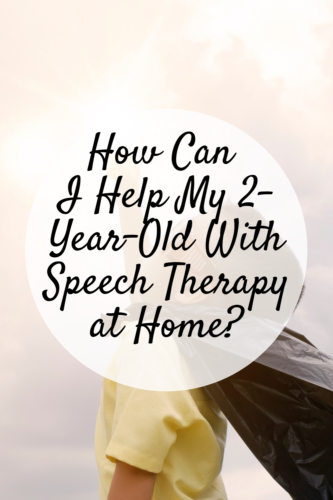

If your child happens to be diagnosed with a speech delay and needs professional help, know that it happens and that it is treatable, especially with early interventions. Your observations of your child’s behavior are crucial in securing the needed aid.
Also, in this 21st century, we are fortunate to live in an age where innovations like speech therapy apps for toddlers are readily available. But what can you do as a parent or guardian? After all, your child gets to spend most of their time with you and at home. Let’s find out below.
On top of the activities and interventions that a speech pathologist, audiologist, or developmental pediatrician might give your child, what you do as a parent or guardian at home will also help. These are some of the ways by which you can help your child’s speech therapy.
First, it is important to understand that the process is not a race. Remember to slow the pace every time you deal with your toddler.
Employ the kindest tone in your conversations and use simple words that are easy to understand. Make sure to have eye contact and speak with utmost patience, slowly.
If you must correct the words your child uses, do so in a gentle manner, helping your child understand the difference from the incorrect one. Learning to listen, respond, and slow down will help your children’s language development. After all, it is through everyday situations that they learn best.
Related to the suggestion above, it is also important to remember that you and your child are not on the same pace for communication. When your child is having trouble saying a certain sound, it is best to continue encouraging them to make that sound on their own.
Be at your child’s level, too, by incorporating the challenging sounds into syllables, like pa-pa-pa or pi-pi-pi for pronouncing “P”. Then, you can use actual words with the same sound. Repetition is a key feature for practice and helps you be at the same pace as your child.
Another good way to be at the same level with your child is to give them options and encourage them to make decisions on their own, such as when they’re asking for things. However, it is important not to give them a “quiz”.
It is better to teach your child things and ask them, “How about eating an orange? We have oranges. Do you want to have an orange or a mango?” These things aid them in their language development and neuro progress.
In terms of physical actions, another piece of advice is to speak and try to kneel while looking at your child. It helps increase focus on you and what you are trying to say. Remember, too, to praise small wins accomplished by your child and not emphasize the things they still could not do.
Another aid to speech therapy is removing all types of distractions at home, especially during learning sessions. Turn off the TV, especially when speech therapy activities are in progress since it is distracting and can even serve as a deterrent to language development.
If it cannot be avoided, keep the background noise to a minimum. Remember that your child is going through therapy, and it is best to encourage them to speak rather than do something else.
Lastly, a way to engage and stimulate your child’s speech development is through play. As such, toys that aid in helping your child play well and move around are needed.
There are toys ideal for speech therapy activities, including musical instruments, those that help build imagination, such as stacking wooden blocks, and those that encourage mobility like a ball.
It is best to avoid battery-operated toys that do not lend themselves well to any development. In fact, toys that do all the work themselves might end up doing all the work for your child.
In the end, we believe that open-ended play opportunities are still best since they actually provide ways to encourage your child to communicate and be more expressive.
Your role as parent and guardian still matters amid professional help. What you do at home will greatly influence how your child goes through therapy and how your child develops over time.
Your care and concern will go a long way as your child relies on you in their journey to growth. Patience and gratitude for the plethora of options for therapy are keys to being one with your child towards wellness and towards achieving developmental goals.
Each time a smartphone upgrade cycle completes or a computer reaches the end of its…
If you know anything about Minecraft, you are aware of its popularity among video games…
Spring is here, the weather is getting warmer and we’re just a handful of weeks…
What if the secret to lasting health isn’t just in prescriptions, but in the way…
What transforms a house into a home that truly reflects your personality, lifestyle, and aspirations?…
What makes a photographer more than just someone behind a camera? For many, it’s the…
This website uses cookies.